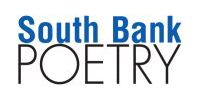Five great poems about London
Louis MacNeice, ‘London Rain’
MacNeice was no Londoner, but he helped London during the most tumultuous period in its history: The Second World War. He was a fire watcher, which meant MacNeice sat on rooftops across the city surveying the smoke rising from buildings. The conflict in Europe serves as the backdrop to this poem, but MacNeice seeks to reject the grand narrative and remind the reader about the importance of the present.
In ‘London Rain’, Louis MacNeice adopts the rhyming scheme ABCBDB and repeats the end word in lines four and six of each stanza. This repetition helps to reinforce key phrases, emphasising important and often beautiful lines, as shown in the final stanza:
My wishes now come homeward,
Their gallopings in vain,
Logic and lust are quiet,
And again it starts to rain;
Falling asleep I listen
To the falling London rain.
William Wordsworth, ‘Composed upon Westminster Bridge’
Wordsworth’s poem seems timeless, capturing the beauty of London in the early morning. It may seem strange that Wordsworth, one of the most famous adherents of romanticism, sought to praise the industrialised city, but it’s the early morning quietness, before the entrenched masses arrive, that attracts Wordsworth.
This is the London of calm that serves to highlight the contrast between nature and commerce: sunlight shines against man-made buildings, colouring the ships and domes of the city. This is urban landscape in natural beauty, praised through a romantic gaze.
‘Composed upon Westminster Bridge’ is a Petrarchan or Italian sonnet arranged in an octave and a sestet, rhyming ABBAABBA and CDCDCD respectively:
Earth has not anything to show more fair:
Dull would he be of soul who could pass by
A sight so touching in its majesty:
This City now doth, like a garment, wear
The beauty of the morning; silent, bare,
Ships, towers, domes, theatres, and temples lie
Open unto the fields, and to the sky;
All bright and glittering in the smokeless air.
Never did sun more beautifully steep
In his first splendour, valley, rock, or hill;
Ne’er saw I, never felt, a calm so deep!
The river glideth at his own sweet will:
Dear God! the very houses seem asleep;
And all that mighty heart is lying still!
William Blake, ‘London’
William Blake, one of Wordsworth’s contemporaries, regularly wrote about the corruption and oppression that arose during the industrial revolution. Blake’s ‘And did those feet in Ancient Time’ provided perhaps the most cited poetic condemnation of the industrial revolution: the ‘dark satanic mills’. Blake’s work on oppression was regularly co-opted by radicals and political figures, such as Clement Atlee. The following stanza was particularly important:
I will not cease from Mental Fight,
Nor shall my sword sleep in my hand:
Till we have built Jerusalem,
In England’s green & pleasant Land.
‘London’ follows similar ideas, exposing institutional and social corruption. Blake describes the city as a place of exploitation and mistreatment, misery and misanthrope. He does not express distaste for Londoners, but rather offers a critique of abusive practices that inflict pain upon the working population.
Blake adopts common form to spread his message, using four stanzas of four lines, adopting the standard rhyming scheme of ABAB:
I wander thro’ each charter’d street,
Near where the charter’d Thames does flow.
And mark in every face I meet
Marks of weakness, marks of woe.
In every cry of every Man,
In every Infants cry of fear,
In every voice: in every ban,
The mind-forg’d manacles I hear
How the Chimney-sweepers cry
Every blackning Church appalls,
And the hapless Soldiers sigh
Runs in blood down Palace walls
But most thro’ midnight streets I hear
How the youthful Harlots curse
Blasts the new-born Infants tear
And blights with plagues the Marriage hearse
Amy Lowell, A London Thoroughfare, 2AM
Amy Lowell highlights London’s contradictions, emphasising the city’s pace and the city’s calmness, the ‘shuffling’ of feet and the ‘slow-moving’ river. The poem strikes a chord familiar to the Londoner. In essence, one could describe the poem as demonstrating the confliction between the previous two poems: showing the calmness of Wordsworth’s London, alongside the mania of Blake’s.
Lowell uses free verse and imagism to capture moments familiar to London life. The stanzas are of different lengths, adopt no common rhyming scheme, and make use of untraditional forms of grammar and punctuation. The absence of formal structures and form helps to create an idea of the commotion which embodies London.
They have watered the street,
It shines in the glare of lamps,
Cold, white lamps,
And lies
Like a slow-moving river,
Barred with silver and black.
Cabs go down it,
One,
And then another.
Between them I hear the shuffling of feet.
Tramps doze on the window-ledges,
Night-walkers pass along the sidewalks.
The city is squalid and sinister,
With the silver-barred street in the midst,
Slow-moving,
A river leading nowhere.
Opposite my window,
The moon cuts,
Clear and round,
Through the plum-coloured night.
She cannot light the city;
It is too bright.
It has white lamps,
And glitters coldly.
I stand in the window and watch the moon.
She is thin and lustreless,
But I love her.
I know the moon,
And this is an alien city.
Jo Shapcott, Gerkin Music
The last poem of the five is the most experimental and contemporary. Published in 2010, Shapcott aims to capture the London of today with its flowing modernity, its futuristic buildings, it’s flat planes and curves.
Shapcott adopts an unusual style, which could be seen as reflecting the spiralling architecture alluded to in the title. Shapcott is self-referential, praising her own form: the scattering of words that fall ‘like glory into the lightwells’. It’s an abstract poem, to be sure, but still retains romantic moments of London life.
walk the spiral
up out of the pavement
into your own reflection, into
transparency, into the space
where flat planes are curves
and you are transposed
as you go higher into a thought
of flying, joining the game
of brilliance and scattering
where fragments of poems,
words, names fall like glory
into the lightwells until
St Mary Axe is burning




